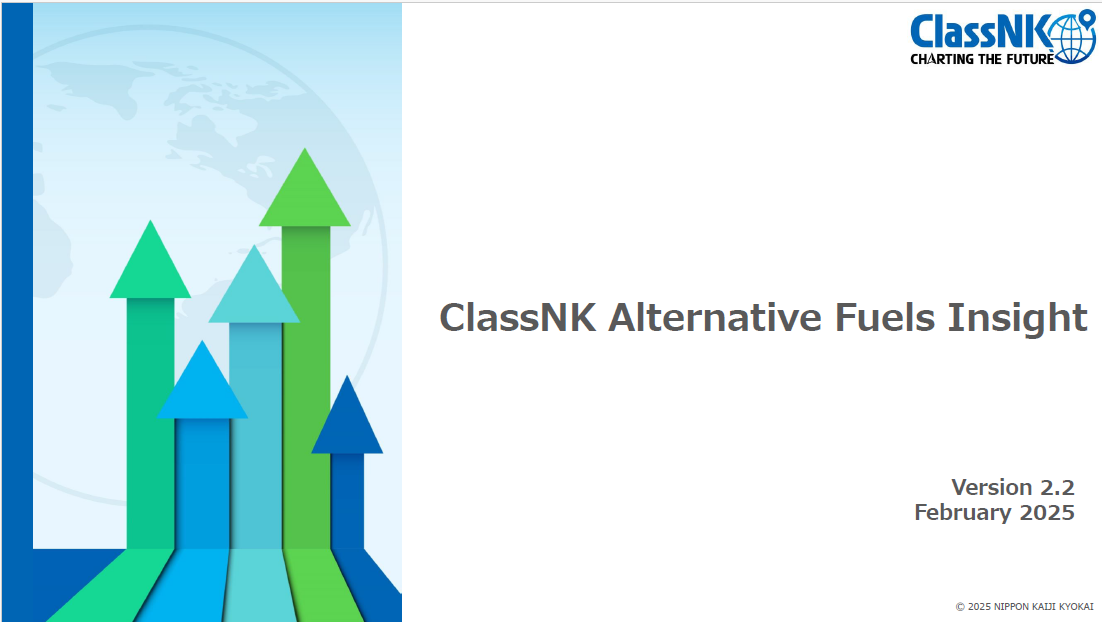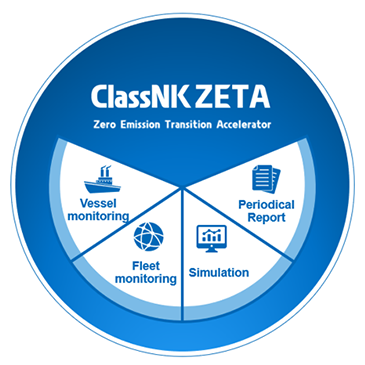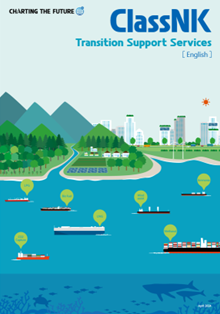
ClassNK Transition Support Services
As reducing GHG emissions becomes an urgent issue for the international society, the maritime industry is facing increasingly stringent pressure to reduce GHG emissions from ships, and the IMO and the EU are strengthening environmental regulations. In this regulatory landscape, it is required to introduce various GHG reduction measures during the transitional phase.
ClassNK provides "ClassNK Transition Support Services” to comprehensively facilitate a smooth transition to zero-emission. This service offers a comprehensive menu of solutions to support clients in reducing GHG emissions and proposes optimal strategies tailored to clients’ needs.
ClassNK Alternative Fuels Insight
When introducing alternative fuels, it is necessary to consider not only technical evaluations but also to understand trends including cost and supply availability. ClassNK provides the latest information on various alternative fuels intended for onboard ship use, covering cost estimations including regulatory compliance, fuel supply forecasts and ordering status for alternative fuels ships through “ClassNK Alternative Fuels Insight.”
“ClassNK Alternative Fuels Insight (Version 3.2)” updates the trends in the adoption of alternative fueled ships and alternative fuel production with the latest information.
ClassNK Alternative Fuels Insight is available from the following link:ClassNK Alternative Fuels Insight (Version 3.2)
The feedback form is available from the following link:Feedback (ClassNK Alternative Fuels Insight)
Contact Details:
Cost Simulation
In order to properly respond to GHG emission reduction regulations like IMO's mid-term measures, EU-ETS, and FuelEU Maritime, it's essential not only to understand the costs associated with these regulations but also to conduct a comprehensive cost simulation, accounting for changes in shipbuilding and fuel costs due to fuel transitions. Through its "ClassNK Fleet Cost Simulation" service, ClassNK conducts these increasingly complex cost evaluations on behalf of clients, including the estimation of regulatory compliance costs.
This service provides the "ClassNK Fleet Cost Calculator," a calculation tool for estimating future cost fluctuations due to fuel conversion, and a "Cost Estimation Report" that summarizes the cost outlook for clients' entire fleets in graphs and tables. The tool supports comprehensive cost estimations, considering regulatory compliance costs as well as other factors like shipbuilding and fuel costs, to help clients develop their future fleet strategy. Furthermore, the tool also enables the setting of various assumptions to meet clients' needs, including fuel prices, vessel replacement timing, energy efficiency improvement rates, GHG emission factors, etc.
Please see below for details about this service.
- Introduction to ClassNK Fleet Cost Simulation (Brochure)
- Cost Estimation Report (Sample)
- ClassNK Fleet Cost Calculator User Manual
Contact Details:
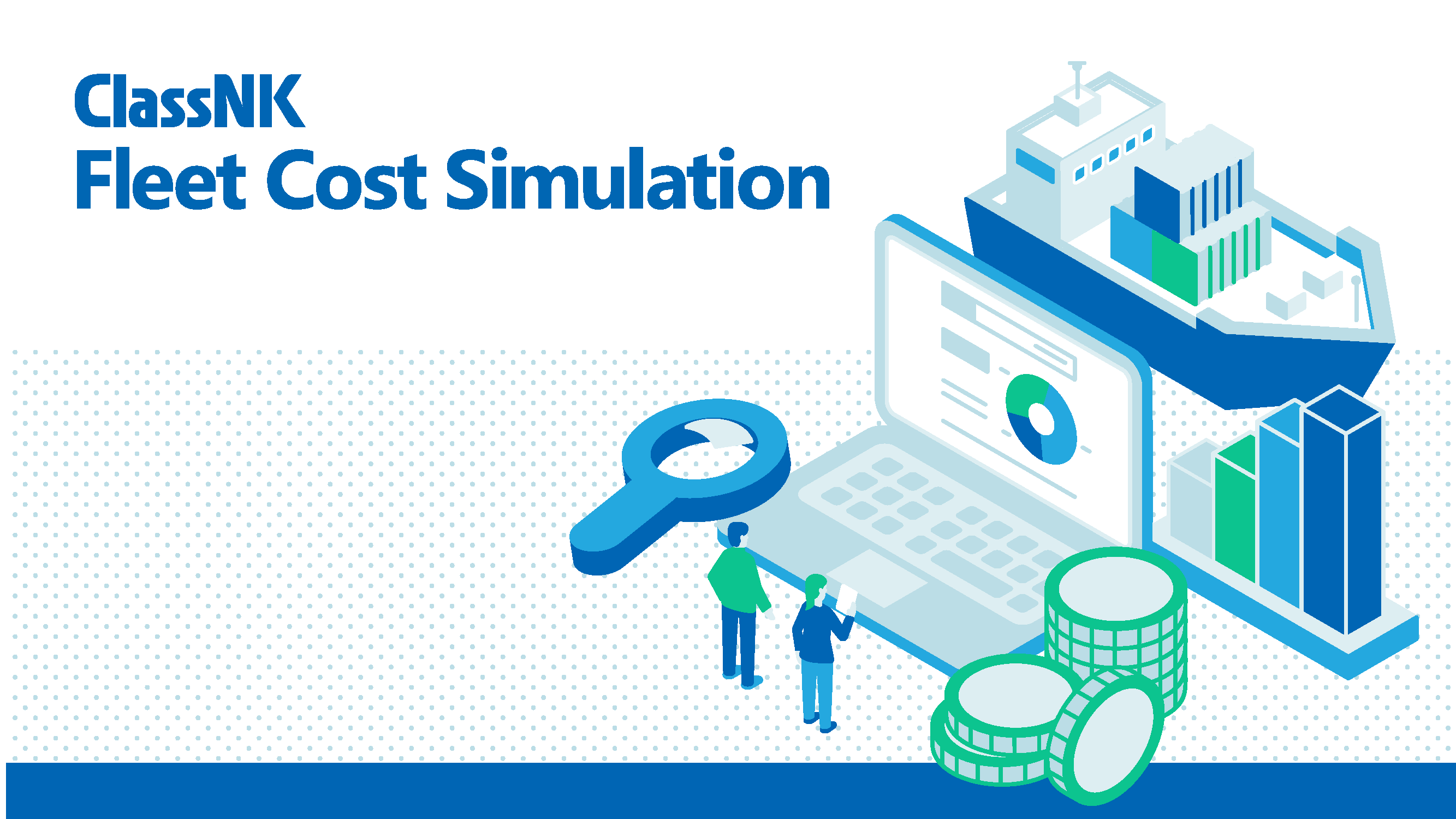
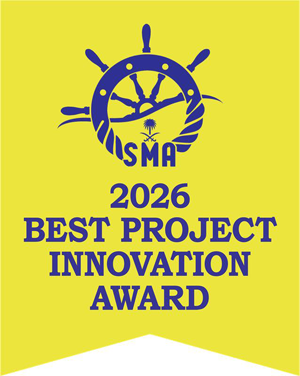
Safety requirements
For alternative fuels ships, the development of safety requirements that consider the risks to ships, crews and the environment has become a pressing issue at the IMO. ClassNK supports the introduction of alternative fuels ships through the publication of its “Guidelines for Ships Using Alternative Fuels,” which provides guidelines on the safety requirements and the design of alternative fuels ships, ahead of the IMO's formalized safety requirements for such ships.
Contact Details:
Newbuilding ships / retrofit support
For newbuild ships using alternative fuels or retrofitting existing ships with alternative fuels systems, ClassNK provides technical support for obtaining Approval in Principle (AiP) and facilitating retrofits, utilizing our knowledge as a classification society.
Contact Details:
Operation / crew training support
As the number of alternative fuels ships rises, international standards and unified guidelines for handling certain fuels like ammonia and methanol onboard, as well as crew training, remain absent. ClassNK supports the operation of alternative fuels ships by issuing guidelines for alternative fuels operations and relevant crew training requirements. Additionally, we offer comprehensive support for crew training, including e-learning modules covering alternative fuels operations.
Contact Details:
Tel: +81-3-5226-2177
e-mail: met@classnk.or.jp
Usage of biofuels
Biofuels are increasingly recognized as carbon-neutral options due to the CO2 absorption by the plants used in their production. They are also considered drop-in fuels, compatible with existing engines without major conversions. ClassNK facilitates the usage of biofuels by offering guidance through the "Technical Guide for Using Biofuels," outlining their features and usage considerations. Moreover, we provide certification aligned with international biofuel certification schemes, ensuring their safe and effective use. For the details, please refer to the following link.
Contact Details:
Fuel certification
The demand for certification of biofuels and green fuels produced sustainably is increasing. ClassNK offers third-party certification for alternative fuels used onboard ships, adhering to the certification scheme. We offer a comprehensive service covering fuel certification and certification of emissions reduction achieved through fuel used, providing clients with a convenient one-stop solution.
Contact Details:
Certification of GHG reduction effects
The use of biofuels and green fuels leads to a decrease in GHG emissions in comparison to conventional fuels. As a third-party organization, ClassNK certifies the reduced GHG emissions stemming from the use of biofuels, etc., in line with ISO standards, GHG protocol, and other relevant criteria. Acquiring certification for reduced GHG emissions enables clients to demonstrate the effectiveness of GHG reduction to stakeholders.
Contact Details:
Certification of methane slip actual values
In recent years, with the increasing use of LNG fuel, there has been mounting concern about the impact of methane slip on global warming, as it releases unburned methane into the atmosphere. ClassNK certifies the actual methane slip values for engines using LNG fuel. Obtaining certification for these actual values enables shipowners and other stakeholders to demonstrate the reduction of GHG emissions.
For details on the application of actual methane slip emission factors under FuelEU Maritime and EU-ETS, please see the link below.
EU-MRV・UK-MRV regulations / EU-ETS / FuelEU Maritime
Contact Details:
Tel: +81-3-5226-3025
e-mail: dcs@classnk.or.jp
NIPPON KAIJI KYOKAI Machinery Department
Tel: +81-3-5226-2022
e-mail: mcd@classnk.or.jp
Estimation of energy efficiency improvement effects
When introducing energy efficiency improvement technologies, it's crucial to anticipate the expected improvement effects beforehand. ClassNK assists in estimating the CO2 reduction effects and the improvement in the CII rating resulting from the introduction of these technologies.
Contact Details:
Support for introducing energy efficiency improvement technologies
Energy efficiency improvement technologies like wind-assisted propulsion systems, air lubrication systems, energy-saving devices, propeller retrofits, and optimal operation support systems yield varying energy efficiency effects. Additionally, the availability of these technologies depends on the hull form and ship type, which may impose limitations. ClassNK supports clients in evaluating energy efficiency improvement by offering support for the introduction of these technologies on each ship. This includes considering the energy efficiency impacts of each technology in conjunction with the ships’ hull form/type.
Contact Details:
Trends
ClassNK provides information to facilitate the introduction of onboard CCS, encompassing insights into implementation trends as well as details on regions, facilities, and storage capacities for captured CO2
Contact Details:
Tel: +81-3-5226-2042
e-mail: tsd@classnk.or.jp
NIPPON KAIJI KYOKAI Machinery Department
Tel: +81-3-5226-2022
e-mail: mcd@classnk.or.jp
Safety requirements
Internationally recognized safety standards for onboard CCS systems and installations are currently lacking. ClassNK supports the introduction of onboard CCS by publishing resources like the "Guidelines for Shipboard CO2 Capture and Storage Systems" which delineate essential safety requirements for both equipment and installation pertaining to onboard CCS.
Contact Details:
Certification of captured CO2 volume
As a third-party, ClassNK certifies the actual amount of CO2 captured by onboard CCS. The certification of this captured CO2 volume enables stakeholders to appreciate the reduction in CO2 emissions. Moreover, ClassNK assists in ensuring that the CO2 reduction achieved through onboard CCS is duly recognized within both IMO and EU regulatory frameworks.
Contact Details:
Tel: +81-3-5226-3025
e-mail: dcs@classnk.or.jp
NIPPON KAIJI KYOKAI External Affairs Department
Tel: +81-3-5226-2038
e-mail: xad@classnk.or.jp
ClassNK MRV Portal
ClassNK provides “ClassNK MRV Portal”, a software to store and manage voyage data and supporting documents (BDN, B/L etc) for IMO-DCS/EU MRV. For the details of ClassNK MRV Portal, please refer to the following link.
Contact Details:
Tel: +81-3-5226-3025
e-mail: mrvsupport@classnk.or.jp
ClassNK ZETA
ClassNK ZETA (Zero Emission Transition Accelerator) is a tool to enable various customers to manage GHG emissions from ships, linked with the ClassNK MRV Portal. It is equipped with features for constantly monitoring CO2 emissions and CII ratings of individual ships and entire fleets, and for simulating how CO2 emissions and CII ratings would change if slow steaming, etc. was implemented. For the details of ClassNK ZETA, please refer to the following link.ClassNK's verification services for EU/UK regulations etc are completely independent from ClassNK ZETA. The use of ClassNK ZETA does not impact the outcome of our verification services.
Contact Details:
Support for Poseidon Principles and Sea Cargo Charter
Some global frameworks have been recently launched to support the decarbonization of international shipping; the Poseidon Principles were established in 2019 to support CO2 reductions from the standpoint of financial institutions, and the Sea Cargo Charter in 2020 from the standpoint of charterers. ClassNK conducts assessment of CO2 reductions as an independent third party to assist customers’ CO2 emissions calculations and to evaluate their CO2 reductions efforts. For the details of such services, please refer to the following links.
Contact Details:
Evaluation for the achievement of carbon neutrality
As climate change is gaining more and more attention on a global scale, companies are increasingly setting their ambitions to achieve carbon neutrality by 2050. Customers may also be aiming to achieve carbon neutrality by 2050 for their fleet. For such customers, ClassNK, as an independent third party, conducts evaluation on how much the CO2 emissions from the customer’s shipping business are aligned with the pathway toward their goals of carbon neutrality.
Contact Details:
What is the IMO’s Mid-term measures and how it works
At the 83rd session of the International Maritime Organization (IMO) Marine Environment Protection Committee (MEPC 83) held in April 2025, draft amendments to MARPOL Annex VI including the IMO's mid-term measures for GHG reduction were approved. In response, the draft amendments will be considered for adoption at the extraordinary MEPC session in October 2025.
To help maritime stakeholders understand the mid-term measures, ClassNK released “What is the IMO’s Mid-term measures and how it works”, which explains the details of the mid-term measures and provides information on how to comply with the regulations.
Download:What is the IMO’s Mid-term measures and how it works
Contact Details:
Pathway to Zero-Emission in International Shipping
The 2023 IMO GHG Strategy was adopted at the 80th session of the IMO Marine Environment Protection Committee (MEPC 80) held in July 2023. In order to contribute to encouraging broad discussions among stakeholders and accelerating efforts towards decarbonization of international shipping, ClassNK tried to visualize the actions required by the 2023 IMO GHG Strategy in quantitative terms by estimating the total GHG emissions, the scale of introduction of zero-emission fuels, and the scale of introduction of zero-emission fuel ships required to achieve the targets and indicative checkpoints in the 2023 IMO GHG Strategy, applying to ships of 5,000 gross tonnage and above engaged in international voyage (subject to IMO DCS).
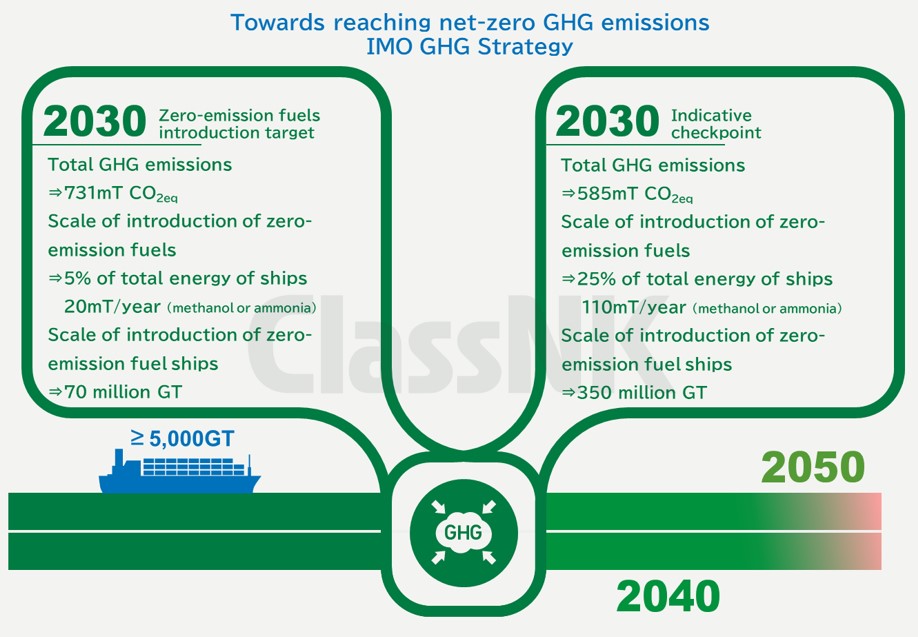
The detail of this analysis has been incorporated as the following whitepaper
- Pathway to Zero-Emission in International Shipping - Understanding the 2023 IMO GHG Strategy –
- Summary material
Contact Details:
FAQs on the EU-ETS for Shipping
ClassNK published the “FAQs on the EU-ETS for Shipping”, which provides an overview of the EU-ETS for the shipping sector and the necessary preparations in a Q&A format to assist maritime stakeholders through the essential preparations required for compliance with the EU-ETS, facilitating their initial steps toward regulatory compliance. For the details, please refer to the following link:
Contact Details:
FAQs on the FuelEU Maritime
ClassNK published the “FAQs on the FuelEU Maritime”, which provides an overview of the FuelEU Maritime and the necessary preparations in a Q&A format to assist maritime stakeholders through the essential preparations required for compliance with the FuelEU Maritime, facilitating their initial steps toward regulatory compliance. For the details, please refer to the following link:
Contact Details:
Relevant material
The brochure of ClassNK Transition Support Services is available from the following link.
Introduction of ClassNK Transition Support Services
Contact Details:
Please contact the following address for any inquiries and consultation about ClassNK Transition Support Services.
el: +81-3-5226-2031
e-mail: gxc@classnk.or.jp
